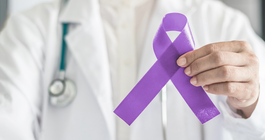
January 11, 2017
It’s 2 a.m., you’ve had too much to drink, and you seriously need some sleep, but your body is demanding you first find it some food.
The need for food after binge drinking is not in your head. Well, it is. The drunken desire is real, and science has finally figured out a likely neurological link as to why.
According to a new study conducted on drunken mice and published this month in Nature Communications, the answer has to do with a hunger-influencing neuron (the agouti-related protein, Agrp, neuron) that appears to be activated by alcohol.
“The hypothalamic Agrp neurons that are normally activated by starvation and evoke intense hunger — display electrical and biochemical hyperactivity on exposure to dietary doses of ethanol," the study notes. In other words, the brain is activated by alcohol to want food.
To conduct the study, the researchers, who were based out of the Francis Crick Institute in London, subjected lab mice to three days of binge drinking and monitored the rodents' eating habits throughout.
This research was done on both male and female mice, and the amount of alcohol would equate to a couple bottles of wine each day, the researchers noted.
To obtain their findings, the researchers then analyzed the brains of the mice both during and after their "drinking" and found that when they suppressed the Agrp neuron activity, alcohol intake was “no longer a significant factor in determining how much the rodents ate.”
Further research on humans will need to be conducted to confirm the findings, lead study author Sarah Cains said in an interview with Scientific American, but she added, "I don't doubt that AgRP neurons are activated in humans, and that's why you see this effect.”